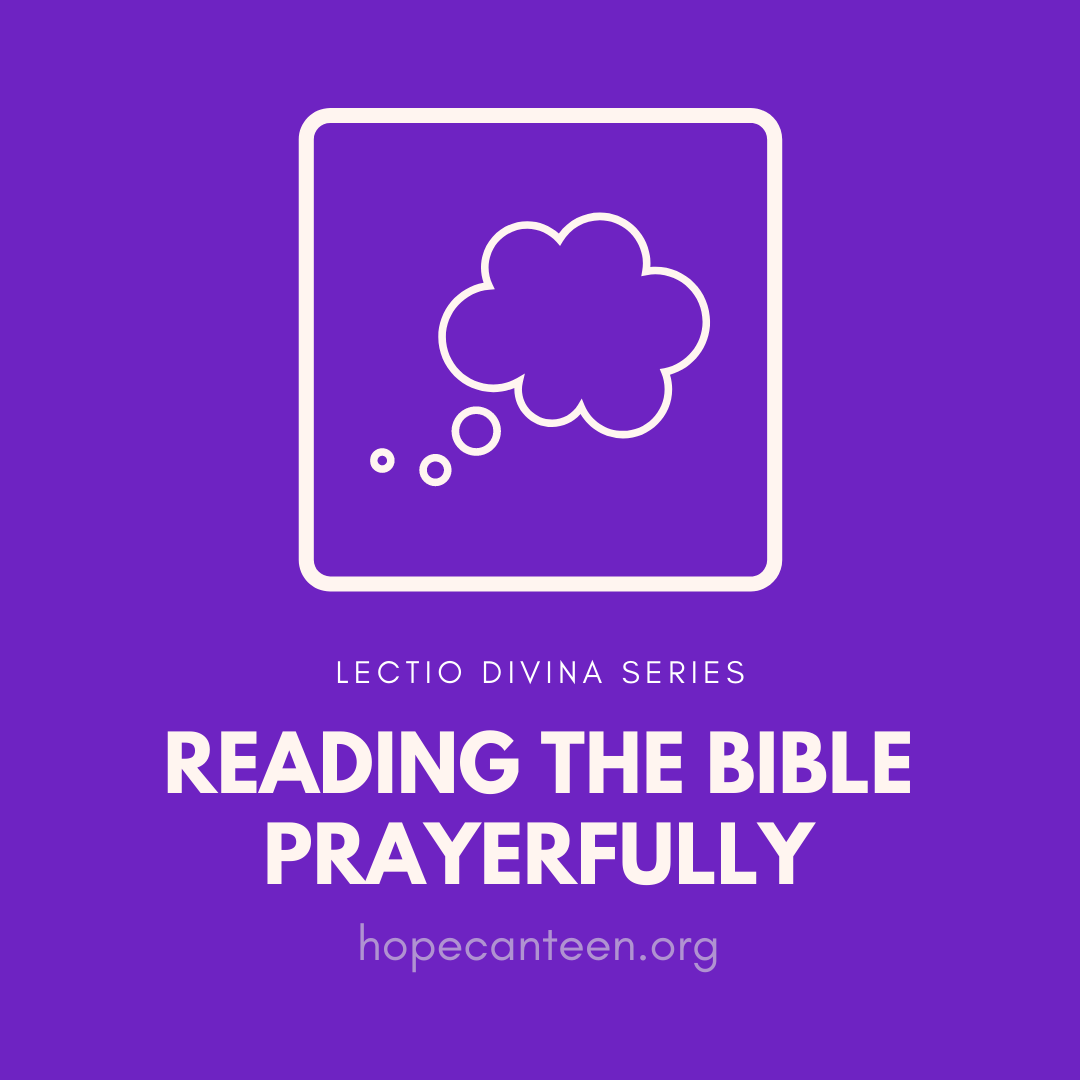In the previous article, I wrote about not hurrying through Scripture. Rather, we should read slowly and deliberately. This is because we are LISTENING, listening very closely. True listening is hard to do, because it needs to be without agenda as much as possible. Even so, taking our time and listening carefully opens the way to reading the Bible prayerfully.
For example, imagine my wife says that she has a good idea about what we should do this weekend. I already have an idea about what we should be doing this weekend, and without listening to her, I already know that my idea is a lot better. I have an agenda, and it keeps me from hearing what she has to say. I have already determined that it is not as good as my idea, and I am only listening to find reasons to show her why my idea is better. This does not honour my wife or our relationship. I would do better to put my agenda aside and listen to what she has to say. This act of putting aside my agenda and paying attention is what I am calling listening.
Deep Listening to Scripture
When we read Scripture, we use this same kind of listening, but we call it “meditation.” This could be confusing. When the Bible uses the word “meditation,” it doesn’t mean sitting in silence, something that is a lot closer to the Christian practice of contemplation. Meditation in the Bible comes from the Hebrew word “to mutter.” We see this in Psalm 1 as it describes the truly happy: “Their delight is in the law of the Lord, and on his law they MEDITATE [mutter] day and night.” Muttering implies that the reader stops and repeats what they just read, so that they can get a deeper sense of what is written.
Ruminating on Scripture

In the Middle Ages, writers talked about ruminating on Scripture. Ruminating comes from the image of a cow chewing its cud. It means that they are covering the same ground over and over. The passage is full of meaning; we need to sit for a time with the image or idea we are meditating on.
The author of our Book of Common Prayer, Thomas Cranmer, wrote a wonderful prayer that describes ruminating on Scripture. He wanted to capture the Reformation desire that people would come to love the Bible as the Word of God. He wanted them to use the Bible, not just as a source of information or to do theology, but as a way to connect to the living God, who still speaks through its pages. The prayer goes like this:
Blessed Lord, who caused all holy Scriptures to be written for our learning: Grant us so to hear them, read, mark, learn, and inwardly digest them, that we may embrace and ever hold fast the blessed hope of everlasting life, which you have given us in our Savior Jesus Christ.
By using that strange but delightful phrase, ‘inwardly digest them’, Cranmer asks us not just to learn the truths of Scripture by rote, but to absorb them into our very souls. Meditation is being spiritually nourished by Holy Scripture.
God Is Always Speaking Through Scripture
Lectio Divina assumes that, in reading the Bible prayerfully, you will find something that speaks to your heart. In his book on meditating on Scripture, Dietrich Bonhoeffer puts it like this: “In our meditation, we ponder the chosen text on the strength of the promise that it has something utterly personal to say to us for this day and for our Christian life.” This is an incredible promise! To claim it, we need to be able to listen carefully and put aside our agenda during our prayer time.
The Lectio Divina Practice of Meditating on Scripture
The practice of meditating on Scripture works like this: as you are reading the passage slowly, pay close attention to how you are feeling and what you notice. Usually, an image, a verse, a phrase, or even just a word will stand out to you. You may just note something interesting. At other times, you might find something you are excited about, or strongly dislike. Whatever it is, stop here and ponder for a moment. First, ask what it means for the Biblical writer. Then, ask what it means for you. Why do you think this place in your reading is interesting to you? You are trying to draw a living connection between the world of the Bible and your world. Our goal is to live in light of what God is doing in the Gospel.
Listening to God’s Word
When something in Scripture speaks to you, it is a good indication that God is using it to tell you something about a question or experience you are having. Sometimes, what God is saying will be clear. Other times, you will need to ponder and pray about it for a while. Either way, after you have meditated on your passage, turn to God in prayer. I will say more about this in the next reflection.

